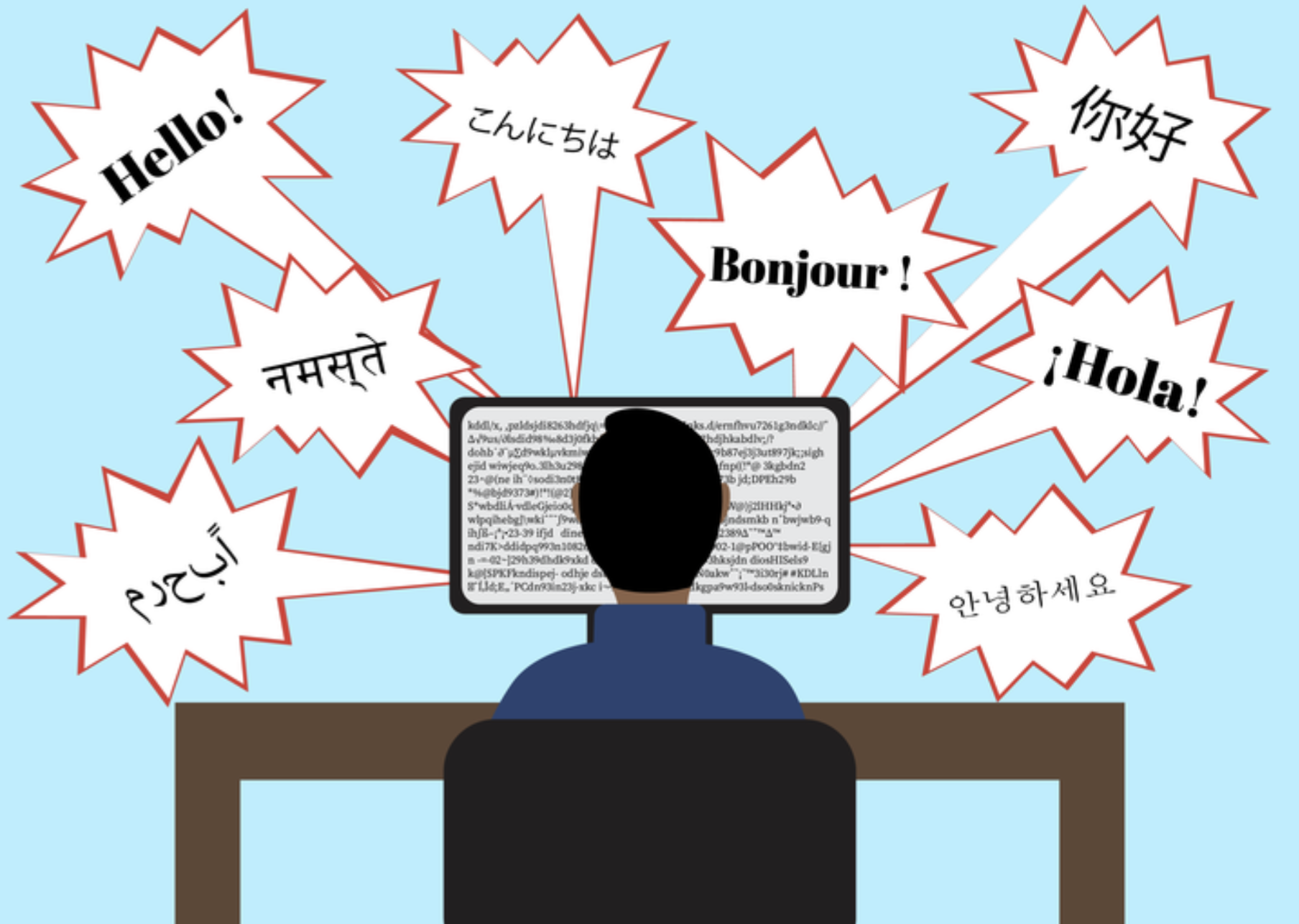Something many foreign language learners may be able to relate to is the nail-biting anxiety that follows after engaging in conversation in a foreign language. Did I pronounce that word right? Was that conjugation correct? Did they actually understand what I was saying, or were they just nodding and smiling?
This language anxiety, where individuals become highly self-critical and fearful of making mistakes in a foreign language, isn’t natural. It is constructed on a widespread scale through the rigidness of classroom curricula that push “correctness” above all else, and by a broader culture that shames linguistic differences.
It is vital to consider that languages have always naturally evolved. On a larger scale, the romance languages — including Spanish, Portuguese, Italian, French, Romanian and Catalan — all evolved out of Latin, becoming individual, equally valid languages of their own. On a smaller scale, linguistic evolution can be seen with the English word “literally.” The word used to be defined only as something exact and not figurative. However, recent usages of the word have carried a sentiment of emphasis, such as in “I am literally dying of laughter”. This second usage is now recognized by major English dictionaries, capturing the evolution of language in real time.
This linguistic reality demonstrates that language is highly subjective and that linguistic correctness is not only hard to define but also carries implications much further than just communication abilities. Therefore, there is a fine line between “correctness”, which reflects a non-fixed dominant dialect of a given language, and simply dialectical differences, or even evolutionary differences.
Linguistic “correctness” often is about much more than simple communication, as it also carries a historical relationship with social power and status. For example, the dialect of American English that Black Americans are usually associated with is African American Vernacular English, or AAVE. It carries a long history of stereotypes and misunderstanding. AAVE is often argued to be improper, the result of disparate education, and overall inferior to more so-called proper ways of speaking that are usually seen in white spaces of middle and upper-class status.
If an error is used so often that it becomes a valid dialect, such as the AAVE usage of “be” to replace “is”, as seen in “he be working”, is language truly as binary, as black and white, as right and wrong as we perceive? Or, are the rules of language arbitrarily upheld to maintain status or exclude demographics from society?
Of course, the American educational system feeds into language anxiety by overwhelmingly focusing on grammar over vocabulary, speaking or even listening. These grammar lessons are usually followed by exams and quizzes where students are graded on their ability to use the language correctly, followed by a letter grade denoting how good their language is. This teaches individuals to quantify their language and to criticize themselves. Overall, this can lead to a negative self-evaluation of their language-learning abilities and discourage them from pressing on and improving.
Is every individual’s way of speaking a language, even if unintelligible by other speakers, equally valid? No. Language still requires a baseline of grammar and pronunciation to function and develop an identity, which learners must adhere to. However, it is important to acknowledge that these rules can change, and often differ between geographic locations. For example, Americans will often say gas, whereas British people will often say petrol. Both are equally valid in conveying meaning, and other speakers of English usually understand both.
In other words, since language is always changing, it is important to hold an open mind when hearing words or phrases you may not be familiar with. Shaming those for their unique language — as opposed to offering a simple correction — is not only insensitive to the hours of work put in to learn that language, but also historically and sociologically questionable.
To my fellow language learners, my message to you is not to take language shaming to heart. Comments that shame language learners for their mistakes or a different way of speaking are not grounded in historical truths and do not embody the subjectivity and fluidity of language. Learning a foreign language is a lifelong process and commitment, meaning errors are inevitable. But, the ability to communicate with the person in front of you is much more important than what letter grade a person would’ve received on a graded exam on their grammar accuracy. Pat yourself on the back for how far you’ve come, give yourself some grace, and keep practicing!
Alexander Randall is an Opinion Intern for the summer 2025 quarter. He can be reached at arandal1@uci.edu.
Edited by Casey Mendoza and Joshua Gonzales.

